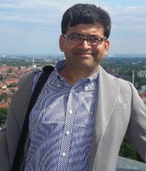Week 1-
Lecture 1: Introduction to error control coding
Lecture 2: Introduction to linear block codes, generator matrix and parity check matrix
Lecture 3: Properties of linear block codes: Syndrome, error detection
Week 2-
Lecture 4: Decoding of linear block codes
Lecture 5: Distance properties of linear block codes
Week 3-
Lecture 6: Some simple linear block codes: Repetition codes, Single parity check codes, Hamming codes, Reed Muller codes
Lecture 7: Bounds on size of codes: Hamming bound, Singleton bound, Plotkin bound, Gilbert-Varshamov bound
Week 4-
Lecture 8: Introduction to convolutional codes-I: Encoding, state diagram, trellis diagram
Lecture 9: Introduction to convolutional codes-II: Classification, realization, distance properties
Lecture 10: Decoding of convolutional codes-I: Viterbi algorithm
Week 5-
Lecture 11: Decoding of convolutional codes-II: BCJR algorithm
Lecture 12: Performance bounds for convolutional codes
Week 6-
Lecture 13: Low density parity check codes
Lecture 14: Decoding of low density parity check codes: Belief propagation algorithm on BSC and AWGN channels
Week 7-
Lecture 15: Turbo codes
Lecture 16: Turbo decoding
Week 8-
Lecture 17: Distance properties of turbo codes
Lecture 18: Convergence of turbo codes
Lecture 19: Automatic repeat request schemes
Lecture 20: Applications of linear codes

DOWNLOAD APP
FOLLOW US